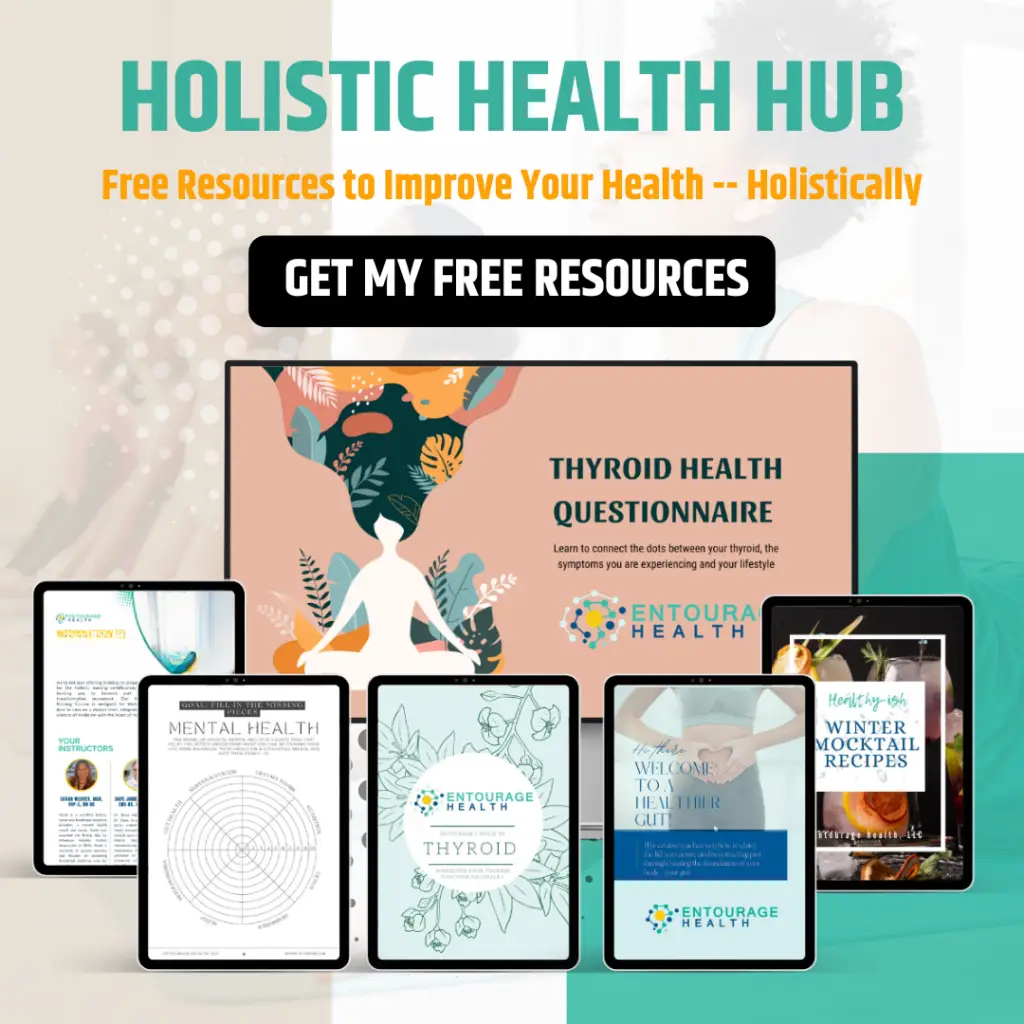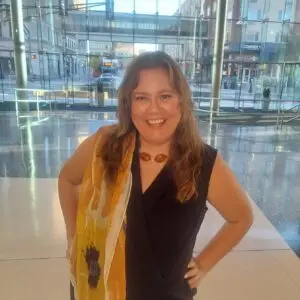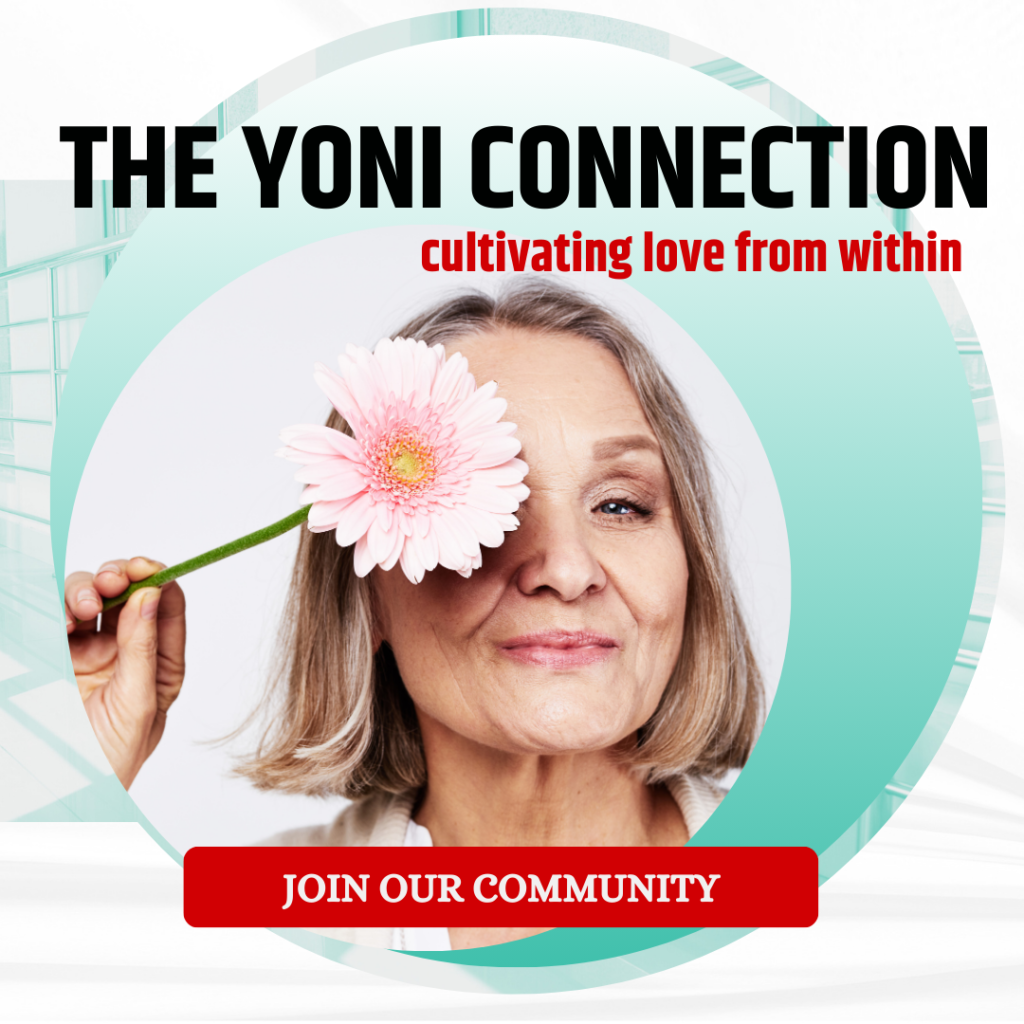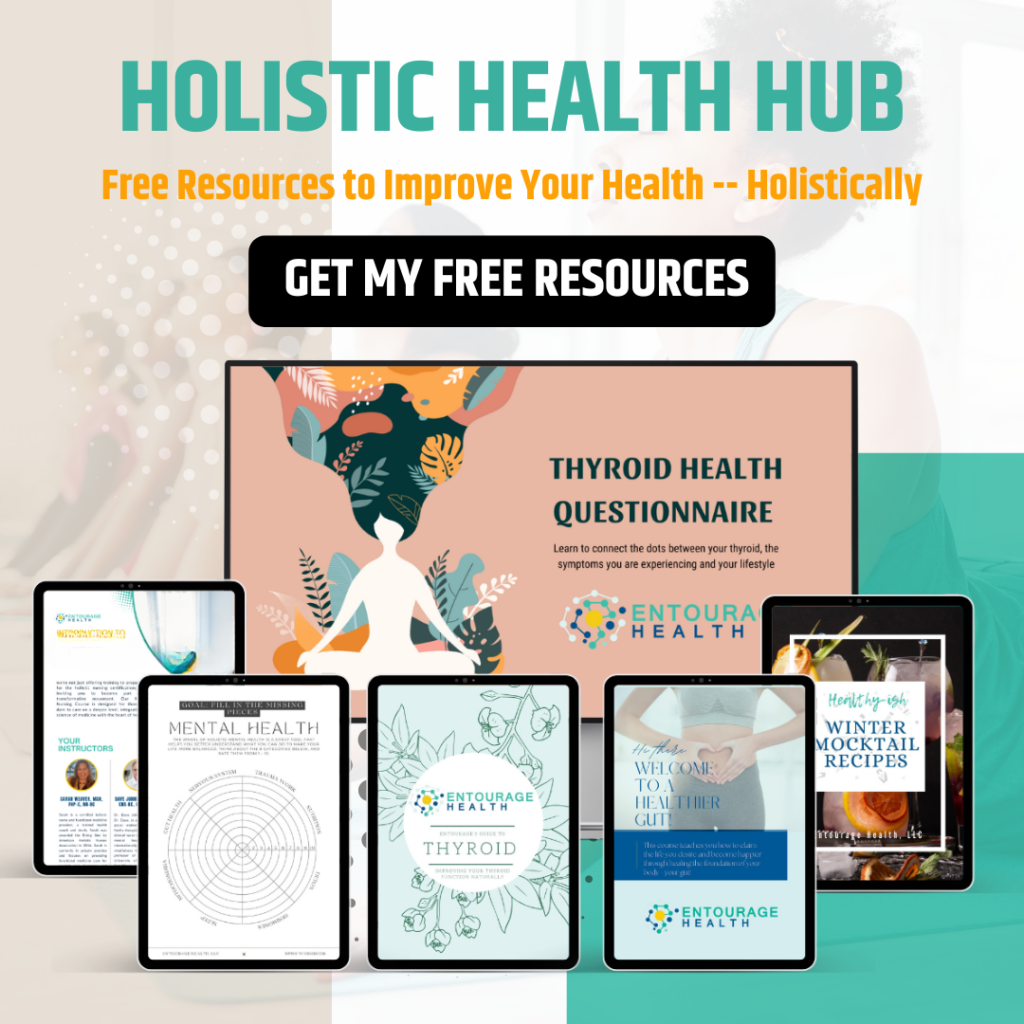Introduction
Change and loss are threads that bind our collective human experience, weaving patterns of grief and growth. For many, navigating this path can feel daunting, a journey through uncharted waters. Yet, in the heart of Mexican tradition lies a practice that offers a lantern to guide us—Día de Muertos, or the Day of the Dead. This vibrant celebration serves as a poignant reminder that death, much like change, is a natural part of life’s cycle, not an end point but a moment of transition.
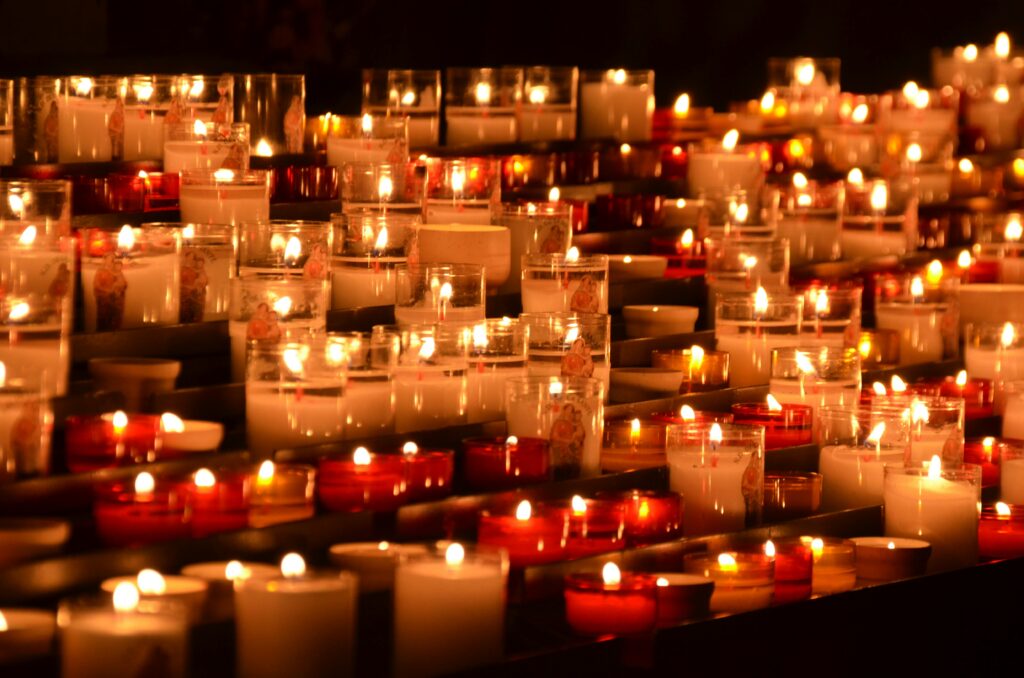
My own journey through grief following the loss of my two brothers to addiction, I have found solace and strength by expanding family celebrations outside my culture of origin. Their absence has been a gale that has both buffeted and directed my course, and amidst this, the Day of the Dead has offered a lens through which to view loss with both warmth and clarity.
Honoring the Cycle of Life
Reflecting on Día de Muertos, we’re invited to see death through a different prism—one that colors it not just as an endpoint but as a component of life’s continuum. In sharing the memory, we join in the universal chorus of those who have loved and lost. Their memories, vibrant and vivid, remain etched within, reminding us that in every moment of remembrance, they live.
Celebrating Memories, Not Just Mourning Loss
Día de Muertos teaches us the power of joyful remembrance. Whether through the creation of an altar (ofrenda) adorned with marigolds or the sharing of stories that bring laughter and tears in equal measure, we celebrate the lives of those past. Our loved ones, with their passions and dreams, their struggles, and their love, are honored not just in moments of sorrow but in the full spectrum of life they experienced.
The Healing Power of Rituals
The rituals of Día de Muertos, from the ofrendas filled with favorite items of the deceased to the gathering of families, underscore the healing power of ritual. Embracing rituals from Día de Muertos and other cultures has provided a scaffold for my emotional well-being, a framework through which grief can be navigated and processed.
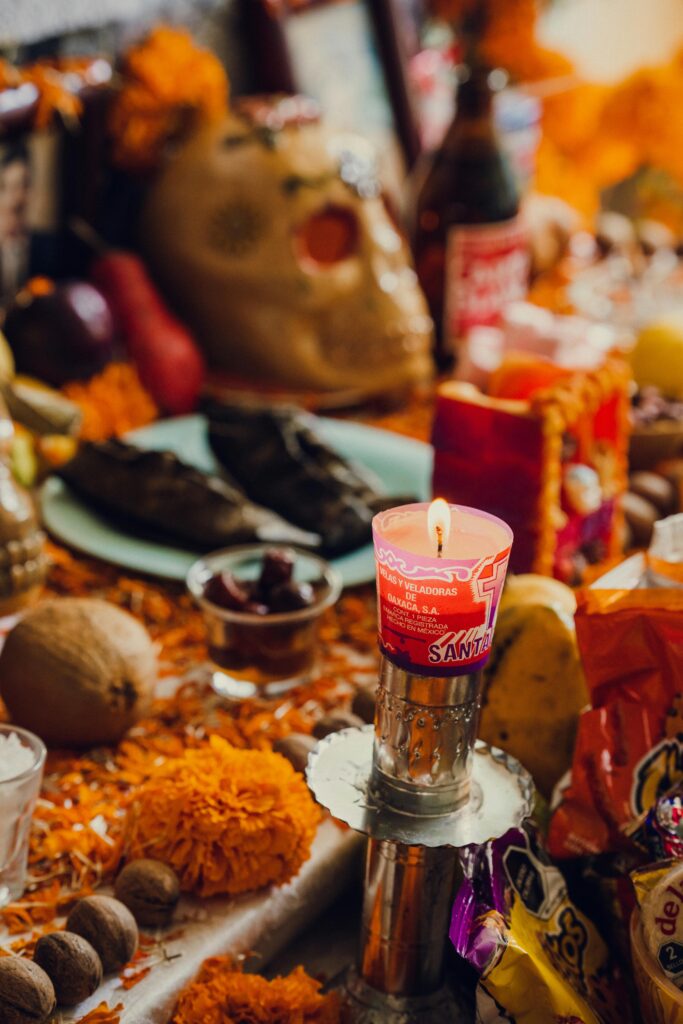
Embracing Change with Open Arms
Life is in constant flux, a series of impermanent states. The resilience Día de Muertos fosters is one rooted in the understanding and acceptance of this impermanence. This perspective has been a lantern in the dark, guiding me towards acceptance and the ability to welcome life’s transformations, even those sculpted by loss.
Community and Connection
At its core, Día de Muertos is a communal celebration, a collective embrace of those who have departed. It’s a poignant reminder of the strength found in togetherness, the balm that connection can offer in times of heartache. Building and leaning on support systems have been indispensable in a grief journey.
Transforming Pain into Purpose
Through the chasm left by loss, there emerges the potential for growth and renewed purpose. My own path has led me to advocacy for addiction awareness, a channel through which my brothers’ memories can serve a greater cause. It’s a testament to how, even in our darkest moments, our pain can be the seed of something profoundly meaningful.
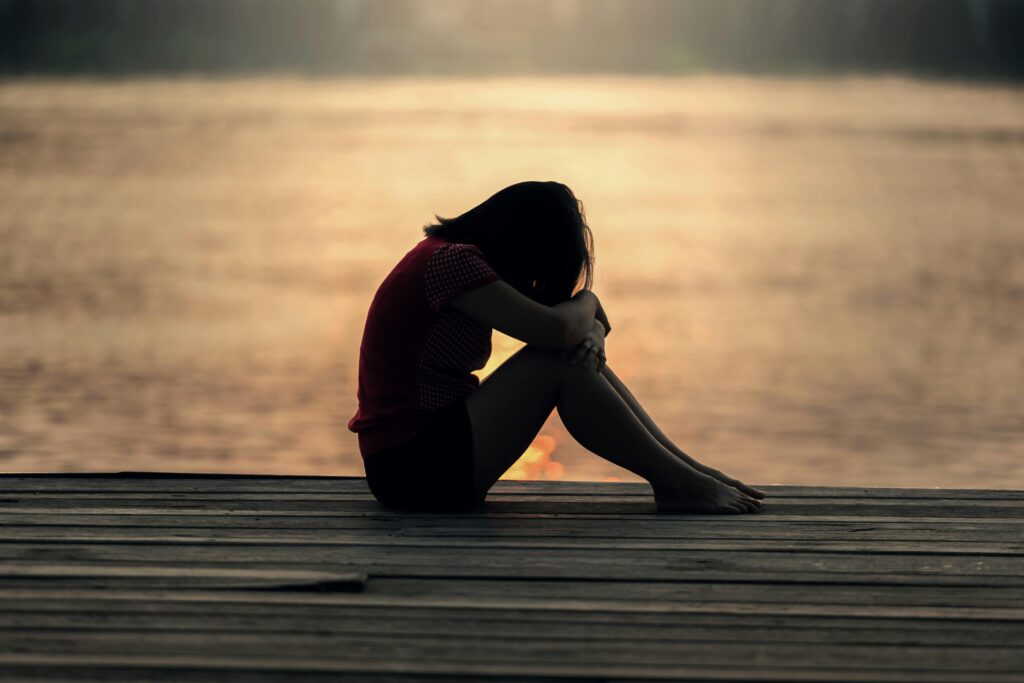
Tools for Healthy Transitions: Nurturing the Mind and Body
Coping with loss and change calls for resources that nurture both mind and body. Strategies might include engaging in mindfulness practices, seeking support from mental health professionals, and cultivating self-compassion. These tools can assist us in honoring our feelings while navigating the journey towards healing.
Mindfulness Practices: Mindfulness is a powerful ally in the journey through change, inviting us to experience the present moment without judgment. Techniques such as meditation, deep breathing exercises, and body scans can lower anxiety levels, reduce symptoms of depression, and improve emotional regulation. Engaging in daily mindfulness practices creates spaces of calm and clarity amidst the storms of change.
Professional Support: Seeking out a mental health professional can provide crucial support during times of transition. Therapists or counselors offer not just an empathetic ear but also strategies to process grief, cope with change, and build resilience. Remember, seeking help is a sign of strength and an important step in nurturing your mental and emotional well-being.
Cultivating Self-Compassion: Be gentle with yourself as you navigate the waters of change. Self-compassion involves treating yourself with the same kindness, concern, and support you would offer a good friend. Practice self-care routines, set healthy boundaries, and remind yourself that it’s okay not to be okay. This gentle approach can significantly impact your emotional healing process.
Physical Well-being: Physical activity can be a powerful tool for managing the stress of change and loss. Exercise releases endorphins, which have mood-lifting properties. Whether it’s a gentle walk, yoga, or more vigorous activities, moving your body can help clear your mind and provide a sense of stability in uncertain times.
Connecting with Nature: Immersing yourself in nature can have a profound effect on your sense of well-being. Studies have shown that spending time outdoors reduces stress, improves mood, and enhances emotional resilience. Whether it’s a walk in the park, gardening, or simply sitting in a natural setting, allow the healing power of nature to soothe your spirit.
Creative Expression: Creative activities can serve as a therapeutic outlet for expressing and processing emotions. Painting, writing, music, or any form of creative art can help articulate feelings that may be hard to put into words, offering a release and insight into your experiences.
Healthy Nutrition: Nourishing your body with balanced, nutritious meals can impact your emotional and physical health. During times of stress, we might lean towards comfort foods that are high in sugar or fat. Instead, focusing on wholesome foods can boost your energy levels and mood, supporting your body’s needs during challenging times.
Building a Support System: Surround yourself with people who understand and support your journey. Connecting with friends, family, or support groups can provide comfort and perspective. Sharing your experiences with others who have faced similar challenges can remind you that you are not alone in your journey.
Structured Routine: Establishing a predictable routine can offer a sense of normalcy and stability amid change. Simple routines related to sleep, meals, and daily activities can ground you in the present and help manage feelings of overwhelm.
Conclusion
I invite you to join me on our annual retreat to celebrate The Day of the Dead in Merida Mexico. This trip is designed to be a perfect blend of fun, community, adventure, relaxation and self-reflection.
Dia los Muertos offers us an invaluable lesson: to view transitions, even those marked by loss, as intrinsic elements of life’s beauty. In honoring our loved ones, acknowledging our pain, and celebrating the continuum of life, we find paths to resilience and transformation.
As we each navigate our journeys of change and healing, let us do so with an open heart, embracing the impermanence and complexity of life. May we find comfort in tradition, in community, and in the enduring power of love. Together, let us walk this path, supporting one another with understanding and compassion.
Through embracing these traditions and lessons, we not only honor those we have lost but also empower ourselves to live more fully, with hearts wide open to life’s infinite possibilities.
Join us in the 2024 Retreat to Merida, Mexico as we explore how to alchemize our grief.
Let us welcome the spirits together in a celebration of life, love, and remembrance.
Remember, you’re not navigating this path alone; we’re here to offer an understanding hand and a wealth of knowledge to support you each step of the way.
Disclaimer: This article is for informational purposes only and does not constitute medical advice. The information contained herein is not intended to replace professional guidance and should be used alongside the expertise of a licensed healthcare provider.
